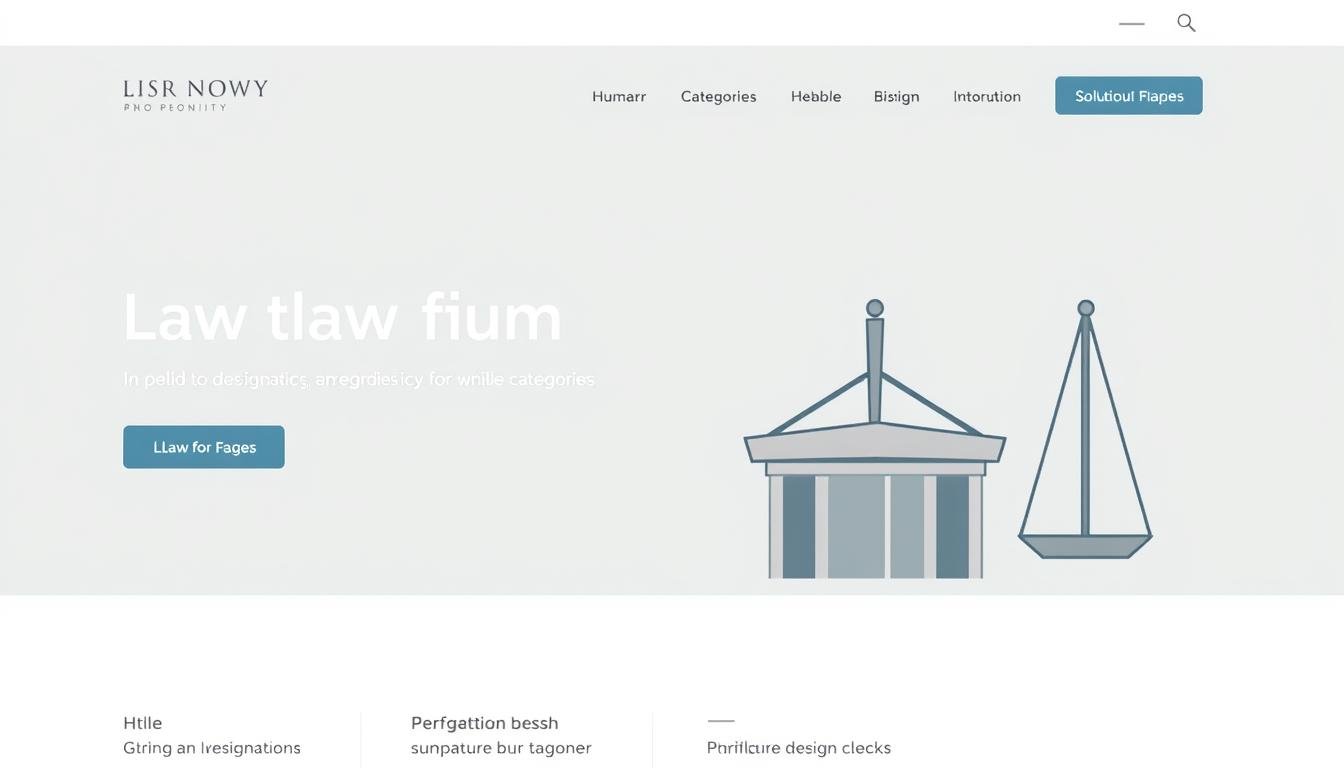Did you know there’s no single federal data privacy law in the U.S. as of 2023? Instead, states handle data privacy laws, creating a complex system. This makes it crucial for law firms to follow privacy rules to keep client information safe.
At Law Webber, we understand the growing tech challenges and data breach threats. We aim to help law firms protect their websites and grow their market presence. Knowing how to handle data privacy is now a must for trust and compliance.
We’ll look at how data privacy laws affect law firms and their clients. We’ll cover important steps to take for protection and staying competitive in the legal field.
Key Takeaways
- Data privacy for legal websites is governed by state laws, creating complexities for compliance.
- Client confidentiality is paramount for law firms, making privacy compliance critical.
- Established laws like the CPRA and CDPA have significant implications on data handling practices.
- Best practices in cybersecurity for law firms include encryption, secure architecture, and regular audits.
- Utilizing advanced tools can strengthen data protection and privacy management.
Understanding Data Privacy Regulations for Legal Websites
Legal websites face a complex world of data privacy rules. It’s key to know these laws well to follow them and keep client info safe. Each rule has its own set of rules for lawyers to follow, making privacy a big deal.
Overview of Current Laws
The U.S. has many data protection laws, but no single federal law. The Federal Trade Commission (FTC) is in charge of enforcing these laws. They fine companies if they lie about how they use data. For example, Google and Facebook were fined for lying about their privacy policies.
Key Regulations to Know
The General Data Protection Regulation (GDPR) is a big rule for handling personal data. It affects all companies that deal with EU citizen data. On the other hand, the California Consumer Privacy Act (CCPA) focuses on California businesses.
GDPR requires clear consent for data use and a data protection officer. CCPA, however, focuses on giving consumers control over their data. This includes the right to know what data is collected, delete it, and opt out of sales.
Compliance Requirements
Law firms need to write clear privacy policies. These policies should explain how they collect, use, and share data. It’s also important to stay updated on changing laws to keep up with compliance.
Talking openly with clients about data handling builds trust. It also shows you follow the rules.

Importance of Data Privacy for Law Firms
Data privacy in law firms is more than just following rules. It’s key to building trust and integrity. Firms that focus on data privacy see many benefits.
Building Client Trust
Trust is essential in client relationships. Handling clients’ sensitive info with care boosts their trust in us. By using strong data privacy measures, we show we care about their privacy.
Clients want their data handled ethically. This builds a strong, lasting partnership based on respect.
Risk Management and Liability
Law firms face many cyber threats today. Data breaches are common and costly. The average breach for professional services costs $4.47 million.
By being proactive in risk management, we can avoid big losses. Regular checks, good response plans, and training are key. Not following privacy rules can lead to big fines and damage to our reputation.
Competitive Advantage
Having a strong data privacy plan gives us an edge. We can show our commitment to handling data ethically. This makes us stand out in a crowded market.
By using secure client portals and multi-factor authentication, we improve security and visibility. Firms that protect client data well can attract more clients who value privacy.
| Data Privacy Aspect | Importance | Impact on Law Firms |
|---|---|---|
| Building Client Trust | Fosters long-term relationships | Increases client retention |
| Risk Management | Reduces likelihood of data breaches | Minimizes financial loss |
| Competitive Advantage | Enhances market visibility | Attracts new clients |
Best Practices for Ensuring Data Privacy
Law firms need effective strategies to keep data safe. By following best practices, we can lower the risk of data breaches. This builds trust with our clients. Here are some key practices for law firms.
Data Encryption Techniques
Data encryption is key to preventing breaches. It keeps sensitive info safe during transmission and storage. When data is encrypted, hackers find it hard to read.
This protection keeps client details safe and follows data privacy laws.
Secure Website Architecture
A secure website is a strong defense against hackers. It includes firewalls, secure logins, and updates. Secure file sharing systems also help keep info safe.
These steps help protect against cyber threats.
Regular Security Audits
Regular security audits find weaknesses before they’re exploited. They check if we follow data privacy laws. They also show where we can improve.
By checking our security often, we can better protect client info.
Training Staff on Data Privacy
Teaching our team about data privacy is crucial. It makes everyone aware of their role in keeping data safe. This reduces mistakes that could lead to breaches.

Tools and Technologies for Data Privacy
Advanced legal technology solutions are key for strong data privacy. They make following rules easier and help protect client data. With the right tools, law firms can keep up with new laws and rules.
Privacy Management Software
Privacy management software is vital for automating compliance. It helps manage consent, data access, and incident reports. Enzuzo offers a full solution for global compliance, helping us follow GDPR and CCPA.
It also helps us understand our data better with tools like data mapping and privacy impact assessments.
Data Loss Prevention Solutions
Data Loss Prevention (DLP) tools boost our data security. They watch data transfers and keep sensitive info safe from unauthorized access. This way, we avoid data leaks and protect our reputation.
Monitoring and Reporting Tools
Monitoring tools give us real-time control over data handling. They alert us to issues and provide detailed reports for audits. Exterro helps thousands of organizations manage data risks, keeping us safe from breaches.
By using these tools, we aim to improve privacy and build trust with our clients.






